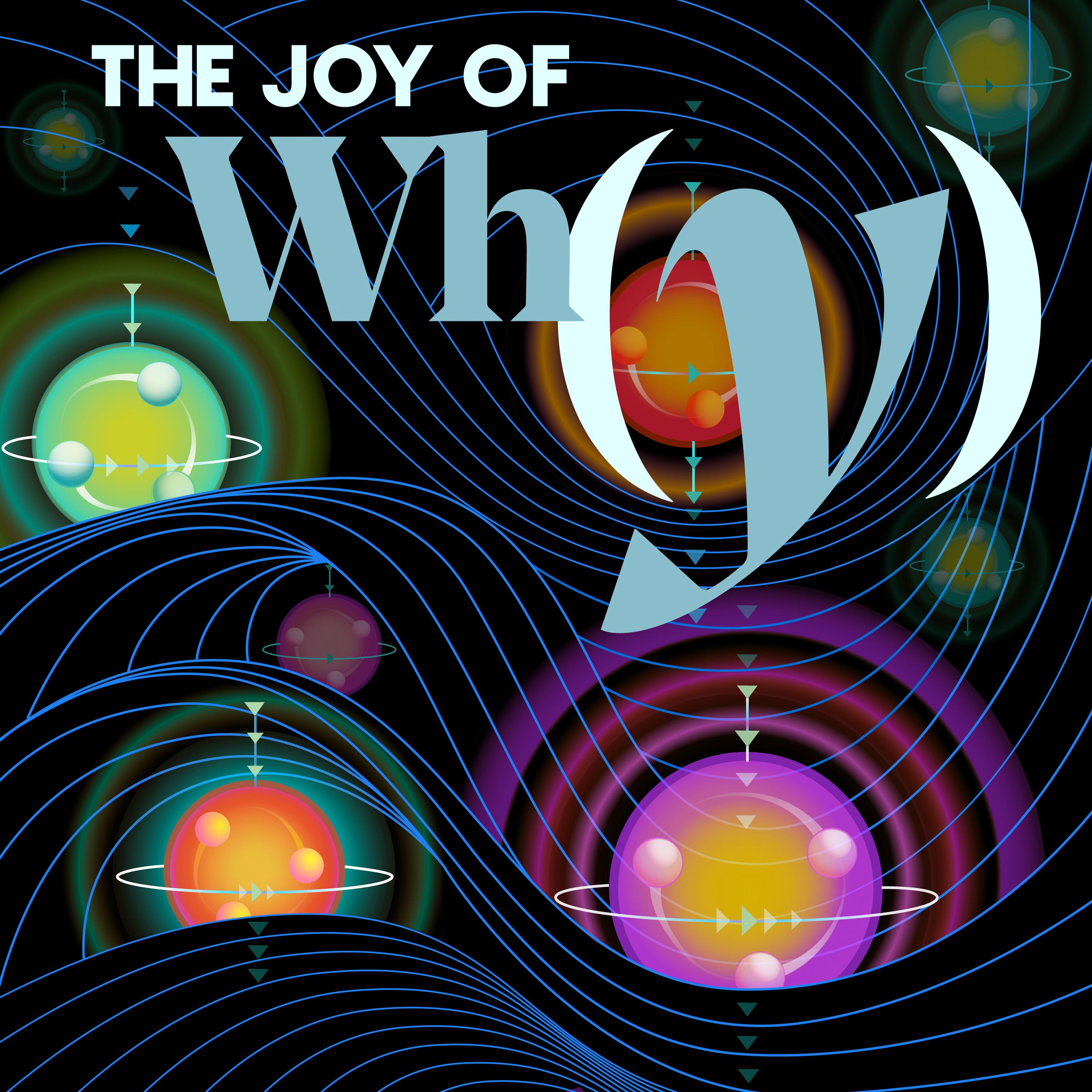
The Joy of Why
Steven Strogatz, Janna Levin and Quanta Magazine“The Joy of Why” is a Quanta Magazine podcast about curiosity and the pursuit of knowledge. The mathematician and author Steven Strogatz and the cosmologist and author Janna Levin take turns interviewing leading researchers about the great scientific and mathematical questions of our time. New episodes are released every other Wednesday.
Quanta Magazine is a Pulitzer Prize–winning, editorially independent online publication launched and supported by the Simons Foundation to illuminate big ideas in science and math through public service journalism. Quanta’s reporters and editors focus on developments in mathematics, theoretical physics, theoretical computer science and the basic life sciences, emphasizing timely, accurate, in-depth and well-crafted articles for its broad discerning audience. In 2023, Steven Strogatz received a National Academies Eric and Wendy Schmidt Award for Excellence in Science Communications partly for his work on “The Joy of Why.”
“The Joy of Why” is a Quanta Magazine podcast about curiosity and the pursuit of knowledge. The mathematician and author Steven Strogatz and the cosmologist and author Janna Levin take turns interviewing leading researchers about the great scientific and mathematical questions of our time. New episodes are released every other Wednesday.
Quanta Magazine is a Pulitzer Prize–winning, editorially independent online publication launched and supported by the Simons Foundation to illuminate big ideas in science and math through public service journalism. Quanta’s reporters and editors focus on developments in mathematics, theoretical physics, theoretical computer science and the basic life sciences, emphasizing timely, accurate, in-depth and well-crafted articles for its broad discerning audience. In 2023, Steven Strogatz received a National Academies Eric and Wendy Schmidt Award for Excellence in Science Communications partly for his work on “The Joy of Why.”


































































How Will We Know We’re Not Alone?

We have identified thousands of planets just in our neighborhood in the Milky Way, mostly from the way they impact their host stars. Basic calculations suggest that there are countless more across the galaxy, and that billions of them could potentially support life. But what kind of life they host, and how we would be able to detect the presence of those biological processes from Earth, remain big questions in the world of exoplanets and astrobiology. What technologies might lie ahead to help us answer the question of whether we are alone in the universe?
Lisa Kaltenegger, an astrophysicist and astrobiologist at Cornell University, talks to Janna Levin about that search, the atmospheric fingerprints of life, and why an advanced alien civilization might decide not to talk to us.